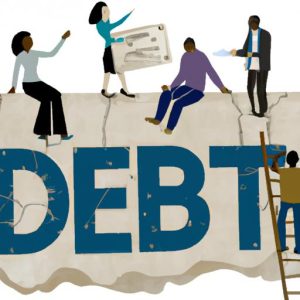Introduction
Credit card debt can quickly spiral out of control, impacting not only our wallets but also our overall financial well-being. It’s like a weight constantly dragging us down, making it challenging to reach our financial goals. So, why is it crucial to tackle and lower credit card debt? Let’s delve into the depths of this financial burden and explore how reducing it can pave the way to a more stable financial future.
In today’s fast-paced world, where swiping a credit card is as easy as a flick of the wrist, many individuals find themselves drowning in credit card debt. This debt can accumulate rapidly, fueled by high-interest rates and minimum payments that barely make a dent in the principal amount. The consequences of carrying a hefty credit card balance extend beyond just financial strain; it can affect our credit scores, limit our ability to secure loans or mortgages, and create a cycle of debt that seems insurmountable. Thus, the importance of lowering credit card debt cannot be overstated. Join me on this journey as we uncover strategies and tips to alleviate the burden of credit card debt and pave the way to financial stability.
Understanding Credit Card Debt
Definition of Credit Card Debt
Credit card debt refers to the outstanding balance that individuals owe to credit card issuers for purchases made using their credit cards. It typically includes the principal amount borrowed, any accrued interest, and additional fees. This form of debt is unsecured, meaning it is not backed by collateral, making it riskier for both borrowers and lenders.
Common Causes of Credit Card Debt
Credit card debt can accumulate due to various factors, including overspending beyond one’s means, unexpected emergencies, job loss, or medical expenses. Additionally, high-interest rates on credit cards can make it challenging to pay off the balance, leading to a cycle of debt that continues to grow over time. Impulse purchases, lack of budgeting, and using credit cards to cover basic living expenses can also contribute to the accumulation of credit card debt.
Effects of High Credit Card Debt on Credit Score and Financial Well-being
Carrying a high amount of credit card debt can have detrimental effects on an individual’s credit score and overall financial health. A high credit utilization ratio, which is the amount of credit used compared to the total credit available, can lower credit scores significantly. This, in turn, can limit access to favorable loan terms, increase interest rates on future credit accounts, and hinder one’s ability to secure financing for major purchases. Moreover, the stress and anxiety associated with mounting debt can impact mental well-being and strain personal relationships. Understanding these implications is crucial in taking proactive steps to lower credit card debt and improve financial stability.
Strategies for Lowering Credit Card Debt
Making a Budget and Tracking Expenses
To tackle credit card debt effectively, it’s essential to start by creating a detailed budget that outlines your income and expenses. By tracking your spending habits, you can identify areas where you may be overspending and make necessary adjustments to allocate more funds towards paying off your credit card debt.
Paying More than the Minimum Payment
While it may be tempting to stick to the minimum payment on your credit card statement, this approach can prolong your debt repayment and cost you more in interest over time. By paying more than the minimum amount due each month, you can chip away at the principal balance faster and reduce the overall interest you’ll pay in the long run.
Consolidating Debt with a Balance Transfer or Personal Loan
Consolidating your credit card debt through a balance transfer to a card with a lower interest rate or taking out a personal loan can help streamline your payments and potentially save you money on interest. However, it’s crucial to read the terms and conditions carefully to ensure that you’re not inadvertently adding more debt or incurring hidden fees.
Negotiating with Credit Card Companies for Lower Interest Rates
Don’t be afraid to reach out to your credit card companies to negotiate for lower interest rates. Many issuers are willing to work with you to reduce your rates, especially if you have a history of on-time payments. By lowering your interest rates, you can decrease the overall cost of your debt and accelerate your journey to becoming debt-free.
Seeking Credit Counseling or Debt Management Services
If you’re feeling overwhelmed by your credit card debt and unsure of where to turn, consider seeking professional help through credit counseling or debt management services. These organizations can provide personalized advice and assistance in creating a repayment plan tailored to your financial situation, helping you navigate the complexities of debt repayment with confidence.
Conclusion
Embracing the journey to lower credit card debt is not just about financial discipline; it’s about taking control of your financial future. By implementing strategies to reduce and manage credit card debt, you are setting yourself on a path towards financial freedom and stability. Remember, the benefits of lowering credit card debt extend far beyond just numbers on a statement. Your credit score will thank you, your stress levels will decrease, and you’ll be saving money that can be allocated towards building a secure financial foundation for the future.
As you navigate the waters of credit card debt, keep in mind that progress may not always be linear, but every step towards reducing your debt is a step in the right direction. Stay committed to your financial goals, seek support when needed, and remember that a debt-free future is within your reach. Together, let’s conquer credit card debt and pave the way to a brighter financial tomorrow.


